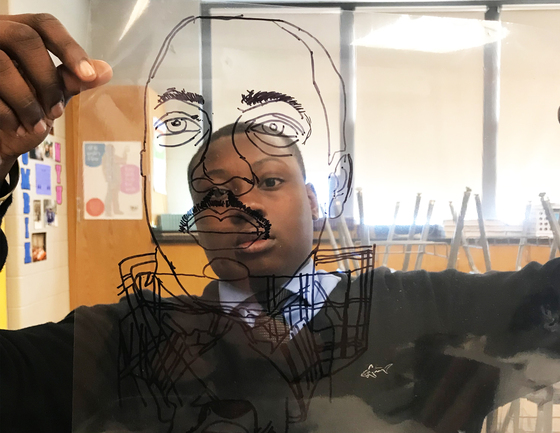In 2015, roughly 45,000 New Yorkers were jailed because they couldn’t pay their court-assigned bail. Today in New York City, only one in ten people who are arrested are able to pay bail when they’re first brought before a judge. What’s bail? Who does it affect? And how?
In the fall and winter of 2017, CUP collaborated with Teaching Artist Caits Meissner and public high school students from the Bronx School for Law, Government and Justice (LGJ) to investigate these questions. Students surveyed members of the school community, interviewed key stakeholders working on the issue, and sat in on public arraignments in Bronx Criminal Court. The crew created Who Makes Bail? to teach others about NYC’s bail system, how it works, and how it could work differently.
Students debuted their project at LGJ, where they presented their booklet, demonstrated their interview skills, and shared their creative process.
Get your own booklet here!







